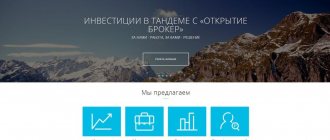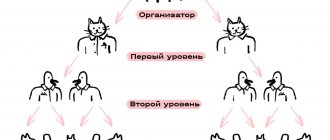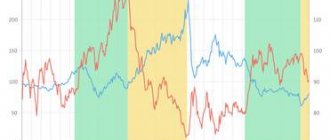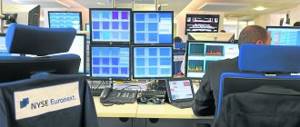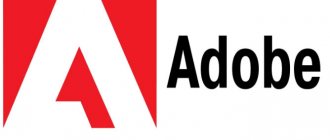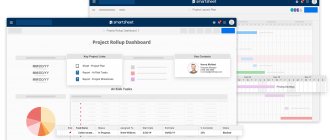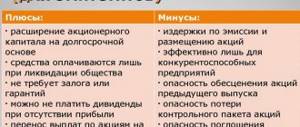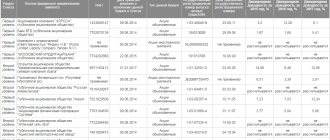The Center for Regulation of Relations in Financial Markets (CROFR) is a non-profit organization created to regulate the level of services provided by brokers and dealing centers, as well as the reliability of services of cryptocurrency market participants. In addition, the cryptocurrency market, cryptocurrency exchanges, and cryptocurrency mining services will fall under the control of the Center for Financial Markets.
TsROFR is regulated by authorized structures of the Russian Federation: the Ministry of Finance, the Central Bank, the Bank of Russia Service for Financial Markets and the Federal Antimonopoly Service.
History of the founding of the Center for Regulation of Relations in Financial Markets
An organization with a dubious reputation, created in 2011, determines the main goal of controlling the quality of services that brokerage companies provide to their clients. The official website of the organization states that this operating principle helps protect traders and investors from unscrupulous brokers, and also helps ensure the transparency of transactions carried out in financial markets.
Representatives of the Center for Financial Markets emphasize that the list of founders of the organization does not include employees of specific brokerage companies who wish to receive “immunity” and avoid punishment in the event of ambiguous situations. The management of the organization considers this circumstance to be a guarantee that nothing can influence decisions regarding the issuance of certificates to a particular company.
Categorization law: what will change next year?
This summer, the State Duma adopted in the third and final reading amendments to the law “On the Securities Market”, regulating the categories of private investors (we talked in detail about the new law here). According to the law, there are two categories of investors in Russia - qualified and unqualified. BUT! The list of instruments that will continue to be available to investors without qualifications is changing significantly.
For example, if you are a typical unqualified investor, you will be able to easily gain access to such instruments as shares of Russian issuers included in the quotation lists of exchanges, government bonds (OFZ), bonds of Russian corporate issuers with a certain level of credit rating (which is the Central Bank for now did not specify) and investment units of exchange-traded, open-ended and interval mutual funds, as well as foreign securities included in the calculation base of indices recognized by the Bank of Russia (for example, S&P 500, NASDAQ-100, Dow Jones, British FTSE 100, Hong Kong Hang Seng, German DAX , French CAC 40, Korean KOSPI 200, Japanese Nikkei 225 and others).
It is also important that ordinary individuals will be able to make transactions with these instruments only with their own money, that is, without using the “leverage” of a broker.
To gain access to an expanded arsenal of tools, individuals will be required to undergo special testing.
It was assumed that the new rules would come into force in April 2022, and testing for categories would begin at the same time. But by the end of the year, the regulator explained not in words, but in actions, that it intends to seriously speed up the process of categorizing investors: in mid-December, the Central Bank already sent letters to professional market participants demanding that they stop the sale of complex financial products to “physicists”, in particular structured products, before testing begins , investment bonds that Russian banks are so fond of offering to their clients seeking increased yield.
In addition, apparently at the instigation of the Central Bank, the dates for the start of testing have also shifted; now, instead of April 2022, it is planned to launch it in October 2021.
Area of responsibility of the Center for Financial Markets
The main goals of the Center for Financial Development are determined by the following tasks:
- issuing certificates to interested companies;
- constant monitoring of the activities of certified companies;
- coordination of Forex market participants operating on Russian territory;
- development and subsequent implementation of tools aimed at minimizing traders’ risks when working in financial markets;
- creation and development of a Compensation Fund to compensate losses to clients of brokers who have received a certificate from the Center for Financial Markets.
At first glance, the list of the organization’s goals is unremarkable and allows us to classify TsROFR as one of the cohort of “fighters for all that is good and against all that is bad.” However, attention is drawn to the organization's willingness to issue certificates to interested companies.
It is clear that conscientious brokerage companies will be interested in the opportunity to receive additional confirmation of the high quality of the services provided. On the other hand, having a certificate from an organization with a respectable acronym allows fraudulent brokers to attract more “clients” and increase their own income from the venture.
Requirements for issuing a license
- Presence on the market for more than two years.
- At least 2,500 active trading accounts.
- The minimum number of registered trading accounts is 5,000.
- Registration with other regulators is desirable (optional).
- Trade regulations and documents warning investors about risks.
- Taking measures to combat money laundering.
- Several representative offices in different countries.
The CROFR certificate becomes evidence of the company’s professional compliance and its competitiveness.
Forex brokers who have received certificates from the Center for Financial Markets
The only financial regulator in Russia is the Bank of Russia. A certificate from the Center for Financial Markets should under no circumstances be considered as a license to operate in the financial market . The certification document only confirms the fact that a particular company has been verified by specialists from the Center for Regulation of Relations and is recommended for cooperation. The decision about whether to trust a particular recommended broker is made by the trader himself.
Ambiguous previous experience allows us to say that the Center for Financial Markets is not a regulator in any sense . In fact, for a financial organization, obtaining a CROFR certificate is a common PR move, another way to announce a broker to a wide range of potential clients.
All dubious brokers from the 3rd league of the Forex and binary options rating of the Masterforex-V Academy are holders of CROFR certificates. Among the “certified brokers” of the Center are: TurboForex, uTrader, Binomo, Migesco, Legend Option, Forum Option, Pocket Option, FinmaxFX, Finmax, Blue Trading, OlympTrade, MaxiTrade, Dafex.io, CFT-Partner and BrightWin.
The official website of the organization does not indicate the names of a number of brokers whose websites include Fr. Such companies are: BINTRADER, ExpertOption, Binex and Binarium.
A representative of one of the companies wishing to obtain a CROFR certificate shared with readers of the resource binaryoptionsfull.com a screenshot of a letter received from the organization.
The text of the message states that a mandatory condition for obtaining a certificate is a payment of $4,000. Funds are transferred to an electronic wallet in the WebMoney system.
Certification in the information field
To obtain a certificate in the information field, you must meet the following criteria:
- Information must be complete, objective, relevant and understandable to a wide audience.
- Strict compliance with copyright.
- Compliance with Russian legislation.
The following conditions for certification are put forward for investment companies:
- Availability of regulations governing the relationship between the consumer and the service provider.
- Warning about possible risks.
- Comprehensive information about the invested project with calculations and compliance with the legislation of the Russian Federation.
What is the Center for Regulation of Relations in Financial Markets known for?
- The Center for Regulation of Relations is a non-governmental organization, so the question of the sources of its financing arises in itself. The answer to the question lies on the surface - the activities of the Center for Financial Markets are financed by companies that, upon receiving certificates, pay a membership fee. This means that certificates are received by interested companies that are willing to pay . Checking the quality of the services provided is very conditional;
- In addition, questions are raised by the fact that “monitoring the activities of certified suitability”, indicated in the list of tasks of the organization, is carried out infrequently - at the time of filing an application for a certificate and during its renewal. The certificate is valid for one calendar year. Throughout the year, the organization’s specialists do not check the activities of brokers or evaluate the transparency and honesty of the services provided. Apparently, the Center for Financial Markets only sells its certificates to anyone willing to pay for the document;
- Another noteworthy point confirming doubts about the cleanliness of the Center is that the organization’s website does not indicate its physical address and the names of the founders . Moreover, the official web resource does not contain data on the organization’s registration documents. This means that the Center for Financial Markets issues certificates to brokers without having permits to carry out this activity .
Anyone can create a website, come up with an organization name similar to the names of government agencies, develop a web resource design using national symbols, and place on the website links to regulations from official sources. After completing these steps, you can start selling “certificates” to everyone. - When issuing a certificate, TsROFR does not require original documents. You just need to indicate the number of traders, office addresses and the start date of the company, without documenting the information. The organization itself calls receiving certificates “an excellent PR opportunity and an additional opportunity to express yourself.” Fraudulent brokers are quite actively used in PR.
- According to the information resource binaryoptionsfull.com, until recently the TsROFR website was located at crofr.ru. At some point, the organization began to receive many claims from clients who suffered from the activities of the notorious MMCIS broker, who had a CROFR certificate.
Negative reviews about TsROFR began to appear immediately. In terms of scale, this scam can be compared to MMM; many traders were on the list of victims. Some defrauded MMCIS clients began to contact the organization asking for protection. Until the collapse of the unscrupulous broker, the “regulator” confirmed the reliability of the company and hid the fact of the growing number of claims against this project.
As a result, instead of protecting and paying compensation to victims, the organization changed the website address to crofr.net, after which it continued its work. None of the scam victims received compensation. Currently, the number of traders complaining about the quality of work of the broker FinmaxFX, another holder of the CROFR certificate, is growing. Details can be found on the website forex-brokers.pro. It is quite possible that soon the Center for Financial Markets will once again change the website address.
Practice shows that the Center for Regulation of Relations does not perform the functions stated on the organization’s official website . Therefore, clients of certified companies will have to find a solution on their own if disputes or other difficulties arise. The MMCIS example allows us to say with confidence that the TsROFR certificate is not a guarantee of the reliability or durability of the company.
Other financial regulators of the world
NFA, SEC and CFTC (USA), FCA (UK), FSC Mauritius (Malta), BaFin (Germany), FINMA (Switzerland), CySEC (Cyprus), (Sweden), CNMV (Spain), SEBI (India), CSRC (China), Botswana IFSC (Botswana), FSC (Mauritius), IFSC (Belize), ASIC (Australia), FSCL (New Zealand), MAS (Singapore), Bank of Russia, AMF and ACPR (France).
Public organizations: KROUFR and RAUFR. Sincerely, wiki Masterforex-, free (school) and professional training courses Masterforex-V for working on forex, stock, futures, commodity and cryptocurrency exchanges.
